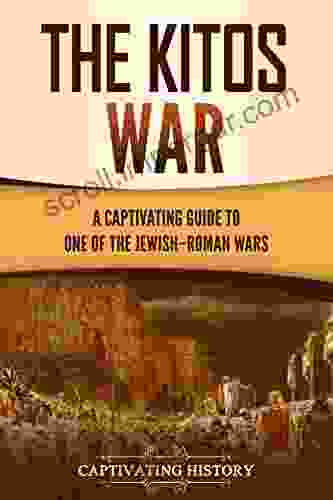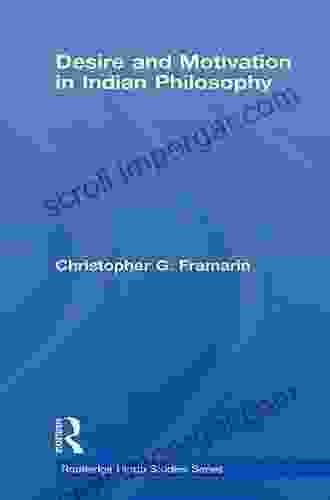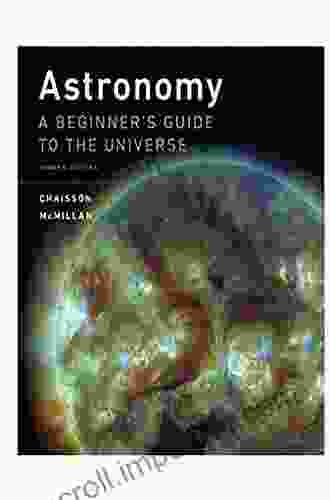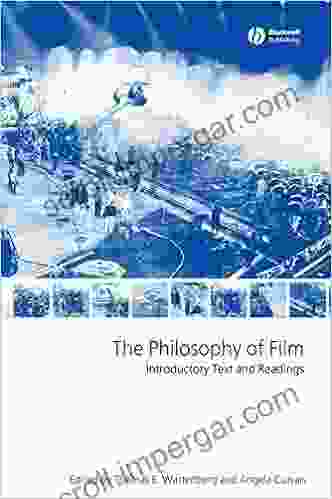Unveiling the Enigma of Desire and Motivation in Indian Philosophy: An Exploration into the Routledge Hindu Studies Series

In the labyrinthine depths of human consciousness, desire and motivation play pivotal roles in shaping our actions, shaping our aspirations, and molding our very existence. Indian philosophy, with its profound insights into the human psyche, offers a rich tapestry of perspectives on these enigmatic forces.
Through rigorous introspection and meticulous analysis, ancient Indian philosophers delved into the nature of desire and motivation, seeking to unravel their complexities and harness their transformative power. This article embarks on a journey through the pages of the Routledge Hindu Studies Series, exploring key texts that illuminate the multifaceted nature of desire and motivation in Indian thought.
5 out of 5
| Language | : | English |
| File size | : | 6272 KB |
| Text-to-Speech | : | Enabled |
| Screen Reader | : | Supported |
| Enhanced typesetting | : | Enabled |
| Print length | : | 213 pages |
Desire in Indian Philosophy
1. The Vedas: The Primordial Source of Desire
In the hallowed halls of the Vedas, the ancient scriptures of Hinduism, desire is recognized as an inherent force in the cosmic Free Download. The Rig Veda, the oldest of the Vedas, paints a picture of the universe emerging from a primordial desire, a yearning for existence and manifestation.
This primordial desire, known as "kama," is not merely a fleeting impulse but an all-pervading force that drives the cycle of birth, death, and rebirth. Through the concept of kama, Indian philosophy acknowledges the potent influence of desire on human actions, guiding our choices and fueling our aspirations.
2. The Upanishads: Transcending Desire
While the Vedas acknowledge the power of desire, the Upanishads, philosophical treatises embedded within the Vedas, offer a more nuanced perspective. They recognize the limitations of desire, highlighting its potential to lead to attachment, suffering, and ultimately, bondage.
The Upanishads advocate for transcending desire through spiritual realization. By cultivating dispassion and detachment, one can free oneself from the cycle of endless cravings and attain a state of liberation known as moksha.
3. The Bhagavad Gita: Balancing Desire and Duty
The Bhagavad Gita, a revered text in Hinduism, offers a practical guide to navigating the complexities of desire and motivation. It recognizes that desire is an intrinsic part of human nature but emphasizes the importance of aligning it with one's duty and responsibilities.
The Gita teaches the concept of "nishkama karma," or selfless action. By performing our duties without seeking personal rewards, we can purify our desires and align them with the greater good, leading to spiritual progress and inner peace.
Motivation in Indian Philosophy
1. The Nyaya-Vaiseshika School: The Mechanics of Motivation
Delving into the realm of motivation, the Nyaya-Vaiseshika school of Indian philosophy provides a systematic framework for understanding its mechanisms. They posit that motivation arises from four primary sources:
- Desire (iccha)
- Aversion (dvesha)
- Effort (prayatna)
- Pleasure (sukha)
These forces interact and influence our actions, providing a comprehensive theory of motivation that accounts for both positive and negative driving forces.
2. The Mimamsa School: Ritual as a Source of Motivation
The Mimamsa school of Indian philosophy takes a unique approach to motivation, emphasizing the role of ritual actions in shaping our desires and aspirations. They believe that through the performance of prescribed rituals, we can purify our minds and cultivate virtuous qualities that serve as potent motivators for positive action.
3. The Advaita Vedanta School: Motivation in the Context of Non-Duality
The Advaita Vedanta school, known for its non-dualistic perspective, offers a distinct view of motivation. They posit that the ultimate source of motivation is the realization of the true nature of the self, which transcends all desires and attachments.
By recognizing the illusory nature of the ego and the interconnectedness of all beings, one can transcend the limitations of desire and find true motivation in the pursuit of spiritual enlightenment.
Our exploration into the Routledge Hindu Studies Series has illuminated the multifaceted nature of desire and motivation in Indian philosophy. From the primal force of kama in the Vedas to the transcendence of desire in the Upanishads and the practical guidance of the Bhagavad Gita, Indian philosophers have delved deeply into these enigmatic forces, offering profound insights that continue to inspire and guide seekers of truth today.
Through a comprehensive analysis of texts such as the Nyaya-Vaiseshika, the Mimamsa, and the Advaita Vedanta, this article has showcased the richness and diversity of perspectives on desire and motivation within Indian thought. By embracing these insights, we can gain a deeper understanding of our own desires and motivations, unlocking the potential for personal growth, spiritual evolution, and greater fulfillment in life.
The Routledge Hindu Studies Series provides an invaluable resource for scholars, students, and practitioners interested in exploring the depths of Indian philosophy. Its rigorous scholarship and accessible presentation make it an indispensable tool for anyone seeking to unravel the enigma of desire and motivation.
May this article serve as a catalyst for your own journey of discovery, empowering you to harness the transformative power of desire and motivation for a life filled with purpose, meaning, and lasting fulfillment.
5 out of 5
| Language | : | English |
| File size | : | 6272 KB |
| Text-to-Speech | : | Enabled |
| Screen Reader | : | Supported |
| Enhanced typesetting | : | Enabled |
| Print length | : | 213 pages |
Do you want to contribute by writing guest posts on this blog?
Please contact us and send us a resume of previous articles that you have written.
 Book
Book Novel
Novel Page
Page Chapter
Chapter Text
Text Story
Story Genre
Genre Reader
Reader Library
Library Paperback
Paperback E-book
E-book Magazine
Magazine Newspaper
Newspaper Paragraph
Paragraph Sentence
Sentence Bookmark
Bookmark Shelf
Shelf Glossary
Glossary Bibliography
Bibliography Foreword
Foreword Preface
Preface Synopsis
Synopsis Annotation
Annotation Footnote
Footnote Manuscript
Manuscript Scroll
Scroll Codex
Codex Tome
Tome Bestseller
Bestseller Classics
Classics Library card
Library card Narrative
Narrative Biography
Biography Autobiography
Autobiography Memoir
Memoir Reference
Reference Encyclopedia
Encyclopedia Miriam Young Medical Herbalist
Miriam Young Medical Herbalist Cecil Hampton
Cecil Hampton John Dollard
John Dollard Nell Mccafferty
Nell Mccafferty Carol A Lukas
Carol A Lukas Cara J Stevens
Cara J Stevens David Tacey
David Tacey Nick Iuppa
Nick Iuppa Carrie Friese
Carrie Friese Carol Bradley
Carol Bradley Meredith Leyva
Meredith Leyva Caroline Braun
Caroline Braun Charles E Williams
Charles E Williams Janie B Butts
Janie B Butts Jean Grainger
Jean Grainger Carolyn Ainscough
Carolyn Ainscough Robert Wallace
Robert Wallace Dan Berne
Dan Berne Candice Fox
Candice Fox Jerry A Coyne
Jerry A Coyne
Light bulbAdvertise smarter! Our strategic ad space ensures maximum exposure. Reserve your spot today!

 W. Somerset MaughamCaptivating Guide to the First Jewish-Roman War: Unraveling the Roots of a...
W. Somerset MaughamCaptivating Guide to the First Jewish-Roman War: Unraveling the Roots of a... Wesley ReedFollow ·3.8k
Wesley ReedFollow ·3.8k W.H. AudenFollow ·2.6k
W.H. AudenFollow ·2.6k Mario Vargas LlosaFollow ·14.7k
Mario Vargas LlosaFollow ·14.7k Ernest HemingwayFollow ·3.9k
Ernest HemingwayFollow ·3.9k Zachary CoxFollow ·10k
Zachary CoxFollow ·10k Devin CoxFollow ·4.6k
Devin CoxFollow ·4.6k Harry HayesFollow ·2.3k
Harry HayesFollow ·2.3k Devin RossFollow ·16.6k
Devin RossFollow ·16.6k

 Henry Hayes
Henry HayesVery Short Introductions: A Gateway to Knowledge...
In the realm of academia, where vast oceans of...

 Jean Blair
Jean BlairBorn on the Third of July: An Unforgettable Journey of...
Born on the Third...

 Benjamin Stone
Benjamin StoneEnvironmental Offsets: Striking a Balance between...
In the face of pressing environmental...

 Colin Foster
Colin FosterGirl With Power: My Boyhood Bully Diary
In this gripping and...

 Colin Foster
Colin FosterUnveiling the Unseen: The Collected Works of Charles Fort
Prepare to venture into...

 Gabriel Mistral
Gabriel MistralUnveiling the Hidden World of the English Republican...
Dive into the captivating world of 'The...
5 out of 5
| Language | : | English |
| File size | : | 6272 KB |
| Text-to-Speech | : | Enabled |
| Screen Reader | : | Supported |
| Enhanced typesetting | : | Enabled |
| Print length | : | 213 pages |










